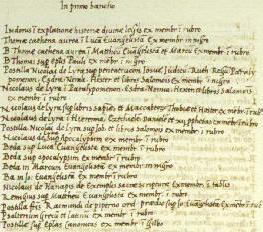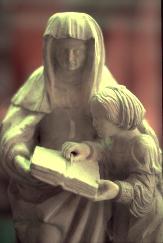#2: "Speech on Reconciliation With America" by Edmund Burke
The bonus book for the week asks this question: Did the American Revolution have to happen? Couldn't England and the Thirteen Colonies have kissed and made up?
In Edmund Burke's "Speech on Conciliation with America", one of history's greats proposes one of history's great might-have-beens to Parliament and the hostile British government in 1775. None of them knew what was going on in America, six weeks' ship travel away. His speech is quixotic, sensible, insightful, and bizarre by turns, but always worth listening to. Boy, could they talk back then.
You can read the unabridged version of his speech either in Volume II of his complete works or in this textbook version with extensive introduction and notes. There are also a wide variety of other annotated Burke sources available on the net, most notably at the Library of Economics and Liberty, which helped me add to the notes in Burke's Complete Works. I didn't go to Eton, so I'd like to know where the Latin tags come from and what they mean, thank you.
Don't take this book's presence here as arguing that conservatism = Catholicism, or anything of the sort. In fact, although Burke is definitely a father of conservative thought, he doesn't fit comfortably into any sort of political division, either of his time or our own. This was deplored as a fault by some, but not by me. Burke stood always for what he saw as right and just; it was politics that shifted around him. But he was a child of his time; and some of what he saw as right, we're bound to recognize as wrong.
Btw, Edmund Burke was the product of a mixed marriage. He was raised Anglican, like his father, because only thus could he go to university and pursue a public career under the Irish Penal Laws. His sister was raised Catholic, like his mother.
DOWNLOAD LINKS:
Part 1
Part 2
Part 3
Part 4
Part 5
Part 6
Part 7
Notes on the speech







